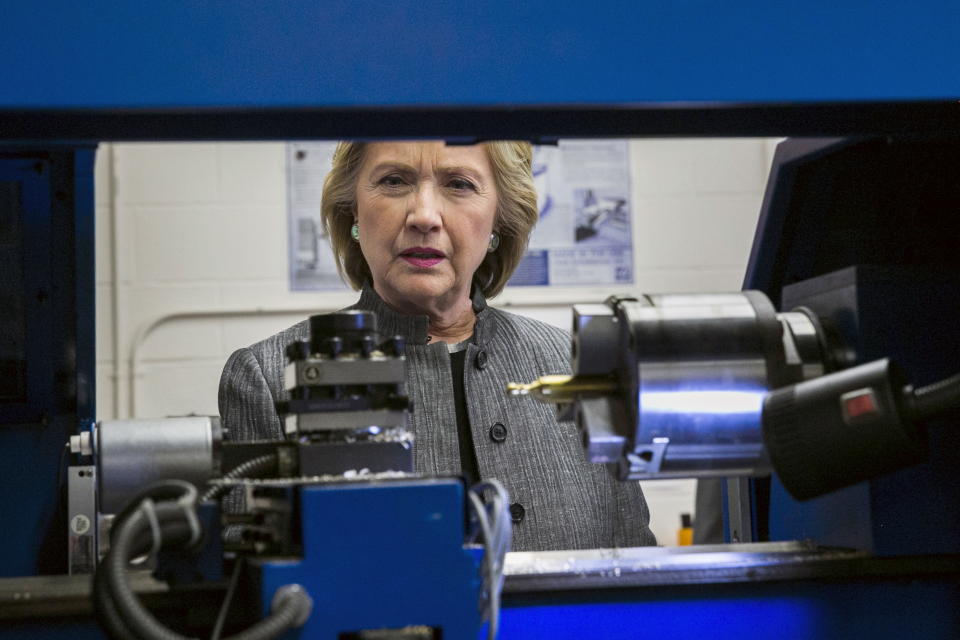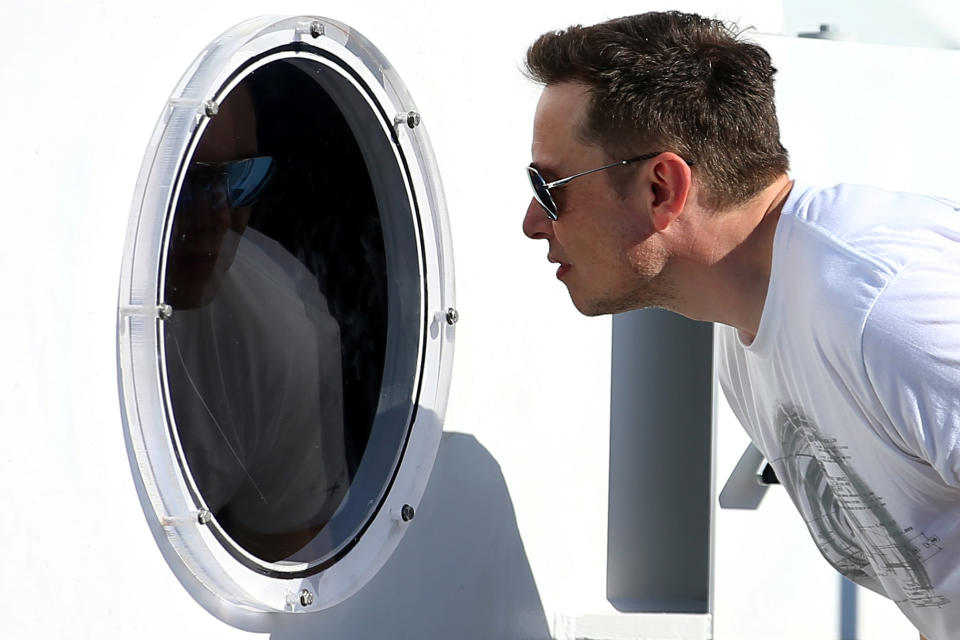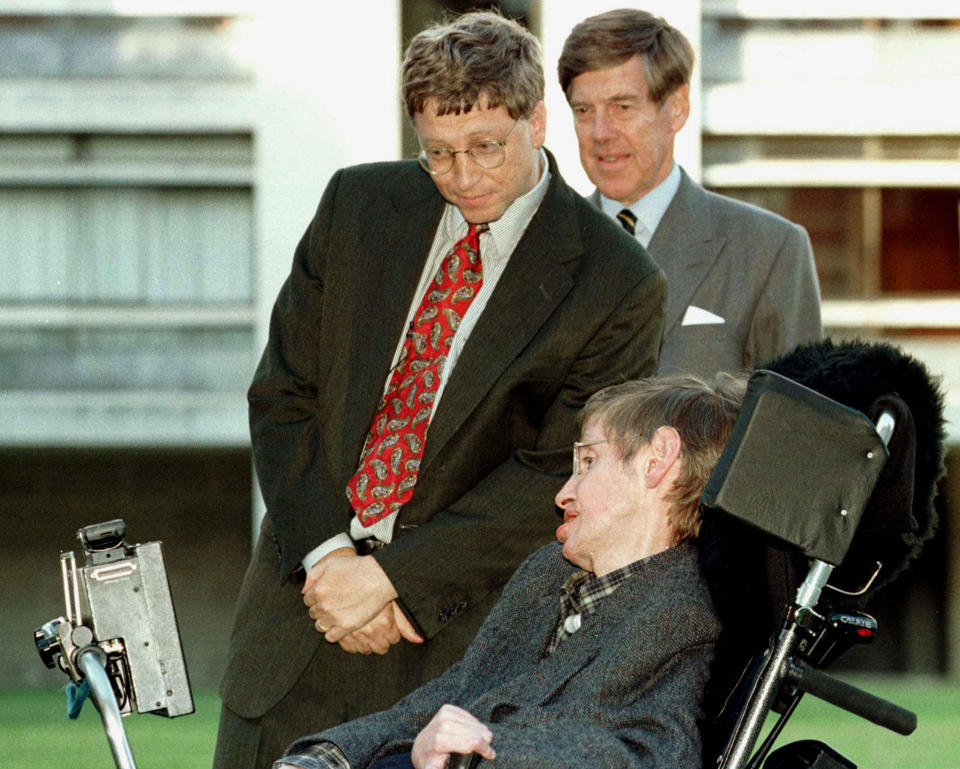Hillary Clinton: 'We are totally unprepared' for the rise of artificial intelligence

Former Secretary of State Hillary Clinton told radio host Hugh Hewitt that humanity is “racing headfirst into a new era of artificial intelligence” without sufficient preparations of how that will impact the world.
“Bill Gates, Elon Musk, Stephen Hawking, a lot of really smart people are sounding an alarm that we’re not hearing,” Clinton said in an interview promoting her new book. “And their alarm is artificial intelligence is not our friend. It can assist us in many ways if it is properly understood and contained. But we are racing headfirst into a new era of artificial intelligence that is going to have dramatic effects on how we live, how we think, how we relate to each other.”
Artifical intelligence (AI) is the simulation of human intelligence processes — such as learning, reasoning, and self-correction — by machines. The technology has advanced rapidly in recent years, leading to innovations including smart home assistants and automated stock trading. At the same time, the evolution of AI has led to fears that AI could eventually surpass human understanding and upend societies.

‘We just don’t know’
Contrary to Clinton’s claim, Microsoft co-founder Bill Gates hasn’t actually said that “artificial intelligence is not our friend.” In the foreword of Microsoft CEO Satya Nadella’s book, Gates wrote that “AI is on the verge of making our lives more productive and creative” while also highlighting inherent challenges: “How do we help people whose jobs are replaced by AI agents and robots? Will users trust their AI agent with all their information?”
Tesla and SpaceX CEO Elon Musk is perhaps the most apocalyptic voice when it comes to AI, asserting that the technology poses a “fundamental risk to the existence of civilization” and is the most likely cause for World War III.
Theoretical physicist Stephen Hawking is ambiguous on AI, recently stating that creating effective AI “could be the biggest event in the history of our civilization. Or the worst. We just don’t know. So we cannot know if we will be infinitely helped by AI, or ignored by it and side-lined, or conceivably destroyed by it.”

‘We are totally unprepared’
Speaking to Hewitt, Clinton highlighted the potential negative consequences of integrating AI into society.
“You know, what are we going to do when we get driverless cars?” she continued. “It sounds like a great idea. And how many millions of people, truck drivers and parcel delivery people and cab drivers and even Uber drivers, what do we do with the millions of people who will no longer have a job? We are totally unprepared for that. What do we do when we are connected to the internet of things and everything we know and everything we say and everything we write is, you know, recorded somewhere? And it can be manipulated against us.”
Whatever happens, Hawking stressed, humans should be ready.
“Unless we learn how to prepare for, and avoid, the potential risks, AI could be the worst event in the history of our civilization,” he told the Web Summit technology conference in Lisbon, Portugal earlier this month. “It brings dangers, like powerful autonomous weapons, or new ways for the few to oppress the many. It could bring great disruption to our economy.”
In 2015 Musk and Hawking joined other tech pioneers and academics in signing an open letter urging significant research on the societal impacts of AI.
Clinton, who lost to Donald Trump in last year’s presidential election, noted that “one thing I wanted to do if I had been president was to have a kind of blue-ribbon commission with people from all kinds of expertise coming together to say what should America’s policy on artificial intelligence be?”
SEE ALSO:
Russian investigative journalist: Snowden is ‘a sort of ghost’
Google Jigsaw CEO: All future wars will ‘begin as cyber wars’
What tech companies can do — within reason — to combat terrorism
